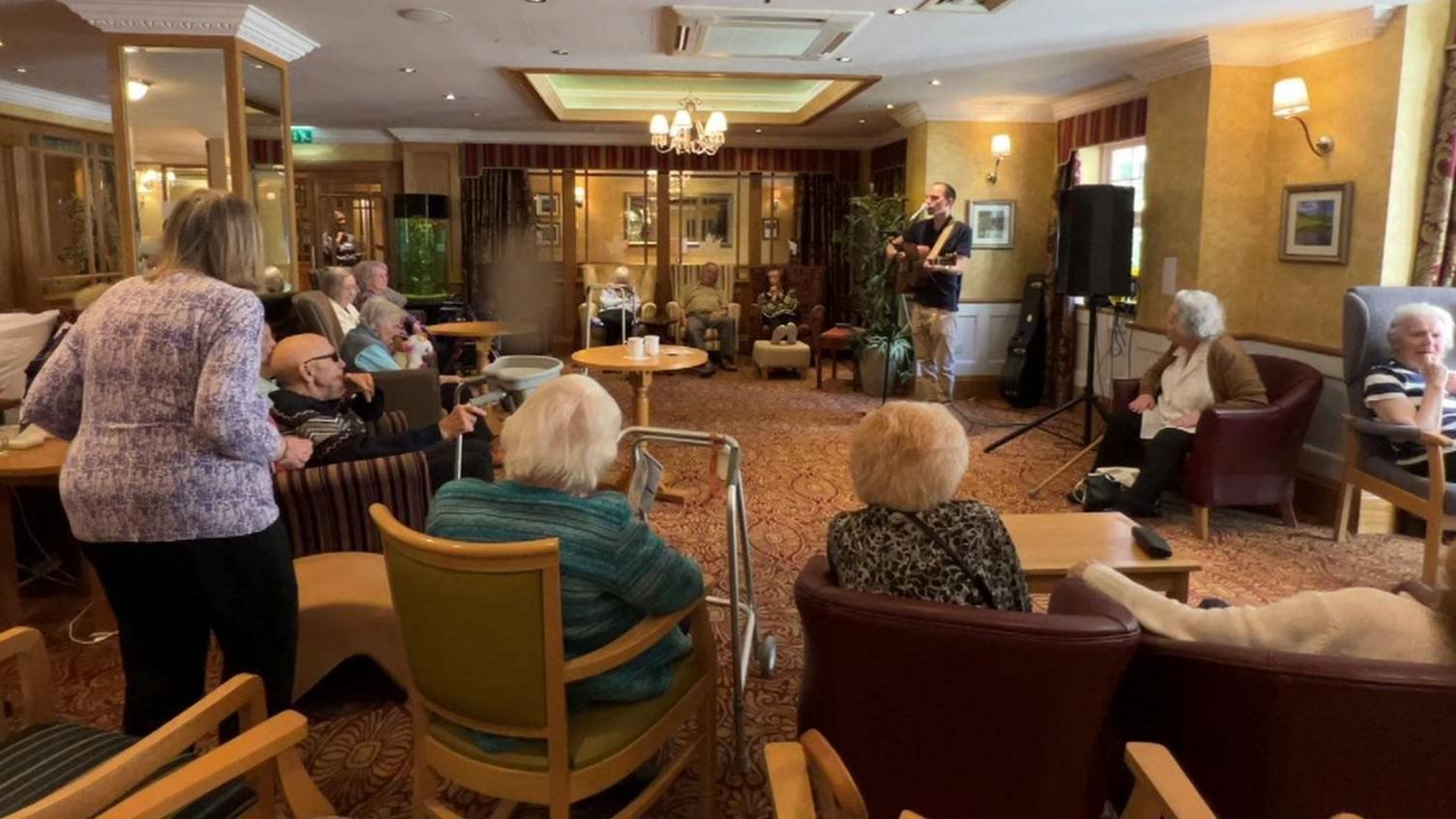'We might need to sell mum's home to pay for care'
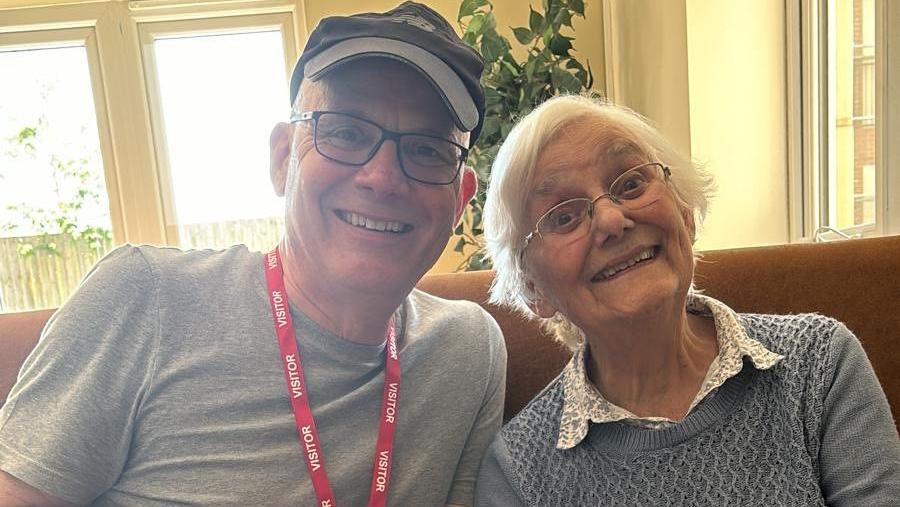
Mike Belton says his family will have to sell his mother's two-bedroom bungalow to pay for her residential care
- Published
Families of elderly people at risk of having to sell their homes to pay for their own social care have called on the next government to stick to a proposed cap on care costs.
The introduction of an £86,000 lifetime cap on costs, set out by former Prime Minister Boris Johnson, was postponed by two years in 2022 due to concern over staffing and financial pressures.
It is now due to be introduced in October 2025, but for some people, like Mike Belton from Worthing in West Sussex, the policy could come too late.
In order to keep paying for his 88-year-old mother's £1,842 weekly residential care costs, he said he would "have to sell her house, everything, basically" by next year.
Mr Belton, 63, whose mother has Alzheimer's, said he wanted the next government to set a date for the introduction of the cap "on day one", as well as "clarity" what it will cover and when it will be calculated from.
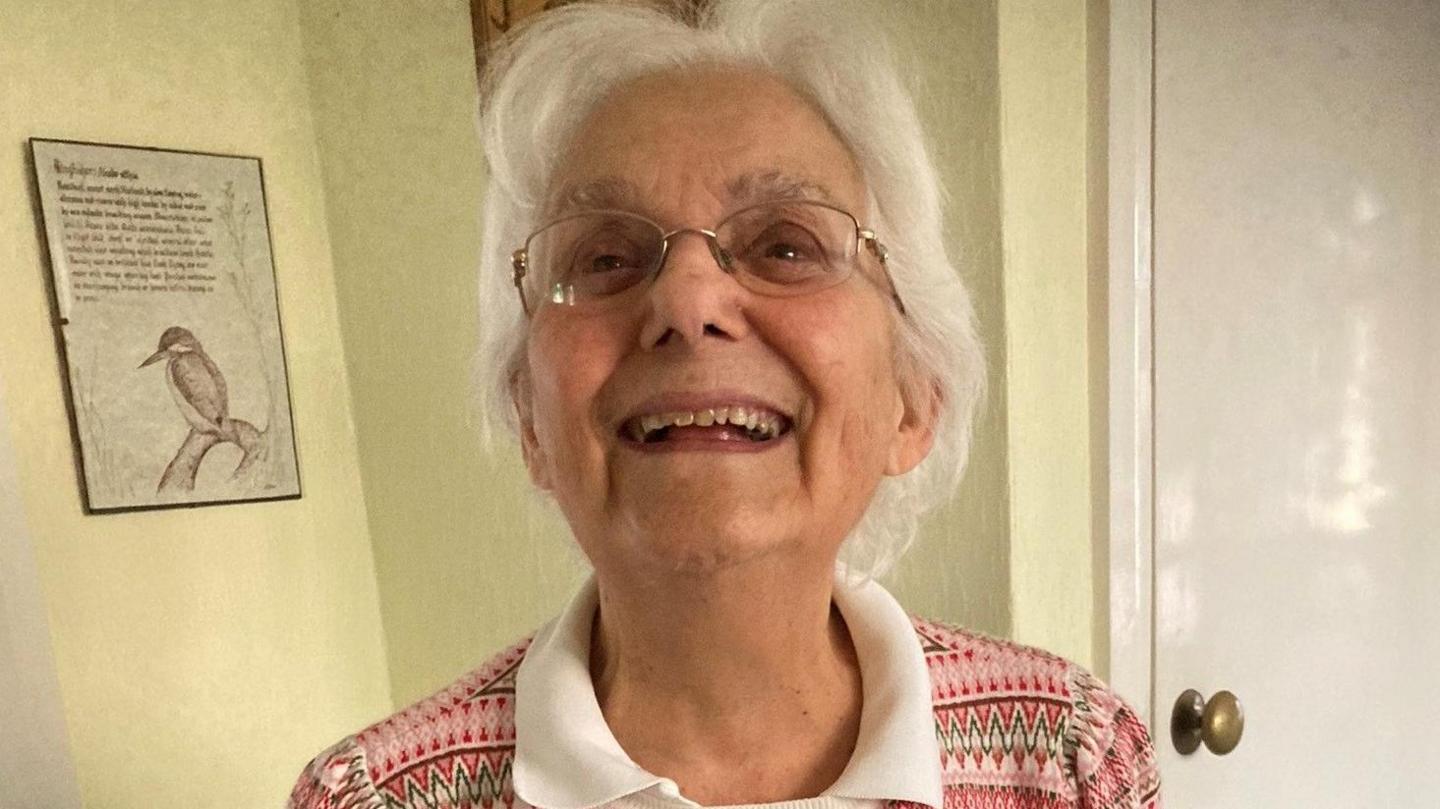
Mr Belton said his mother, a former home carer, and his late father, a painter and decorator, had "worked hard" to pay for their own home
The costs for his mother's care are currently being drawn from her savings, but Mr Belton said he would have to sell her two-bedroom Worthing bungalow - worth around £375,000 - next year in order to keep up payments.
He says he believes a fair system is needed.
Currently, people with savings worth more than £23,250 or who own their own property are not entitled to help with the cost of care.
Under the current system, Mr Belton said: "Mum will be paying £1,800 a week and someone in the next room might be paying absolutely nothing.
"I don't believe anybody should expect to be cared for in their old age for free," he said.
Under the proposals for the cap, the limit would only cover personal care, not living costs such as food or accommodation.
The Conservative election manifesto sets out that it would implement the planned reform from next October, while shadow health secretary Wes Streeting has said Labour had no plans to change delays to the cap on costs.
Both manifestos say the parties will improve pay and conditions for care staff. Labour also pledges to set up a National Care Service within 10 years.
The Liberal Democrats and the Green Party have both said they would make personal care free. while Reform UK said it would set up a royal commission within the first 100 days of a new government to draw up a national plan.
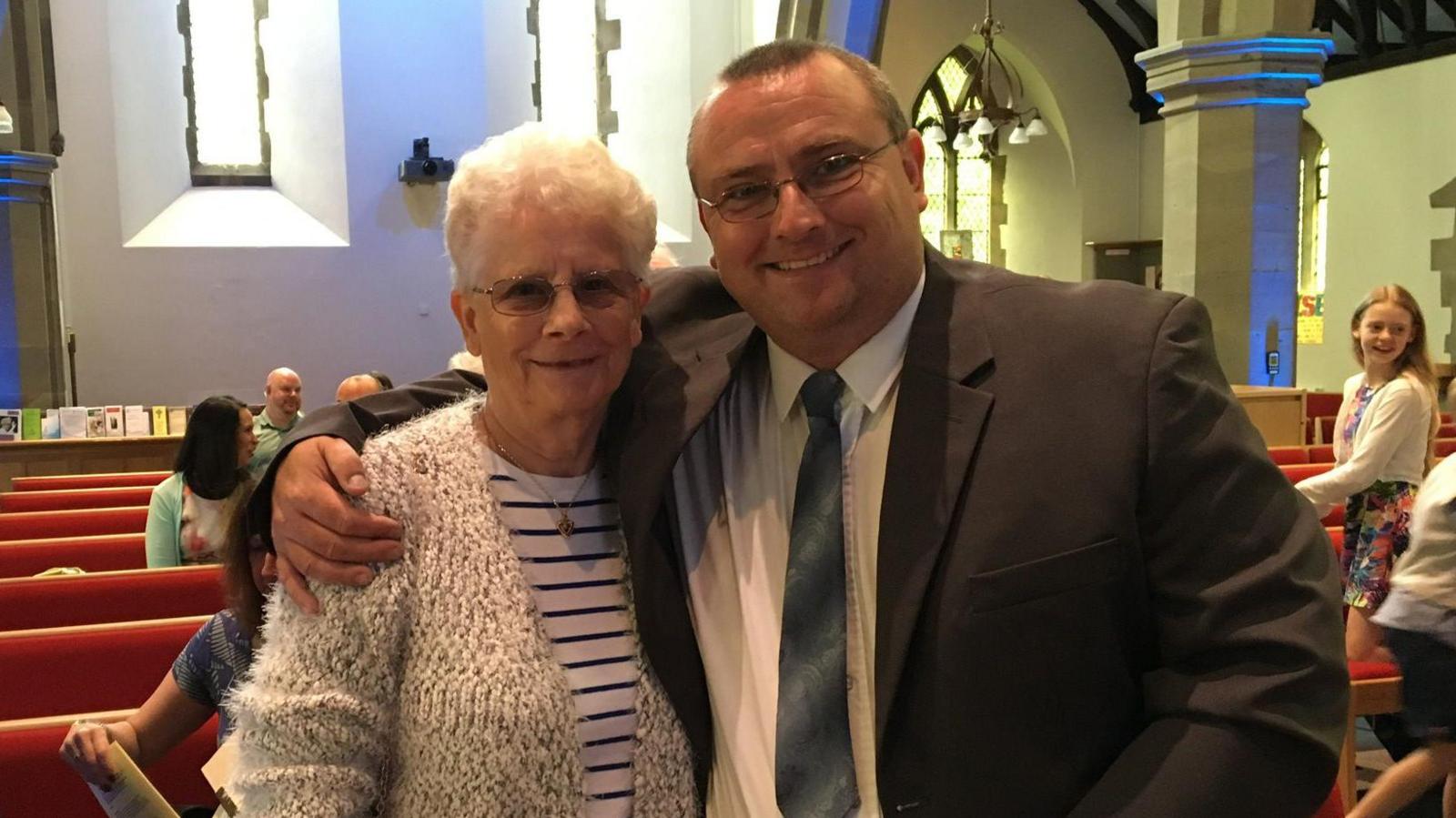
Ian said his mother Sylvia needed to sell her assisted-living flat to pay for her care
But the message has not cut through with everyone, including Ian Streeter, 54, who said his mother would have to sell her assisted-living flat in Redhill, Surrey.
Sylvia, 81, is now living in a nursing home after being diagnosed with terminal lung cancer.
"All I remember is Boris [Johnson] five years ago saying you won’t have to sell your property to pay for your care.
"What’s happened to that? I’ve not heard any of the parties saying anything about it," Mr Streeter said.
But there are other issues within social care for elderly people that voters in south-east England would like to draw parties' attention to.
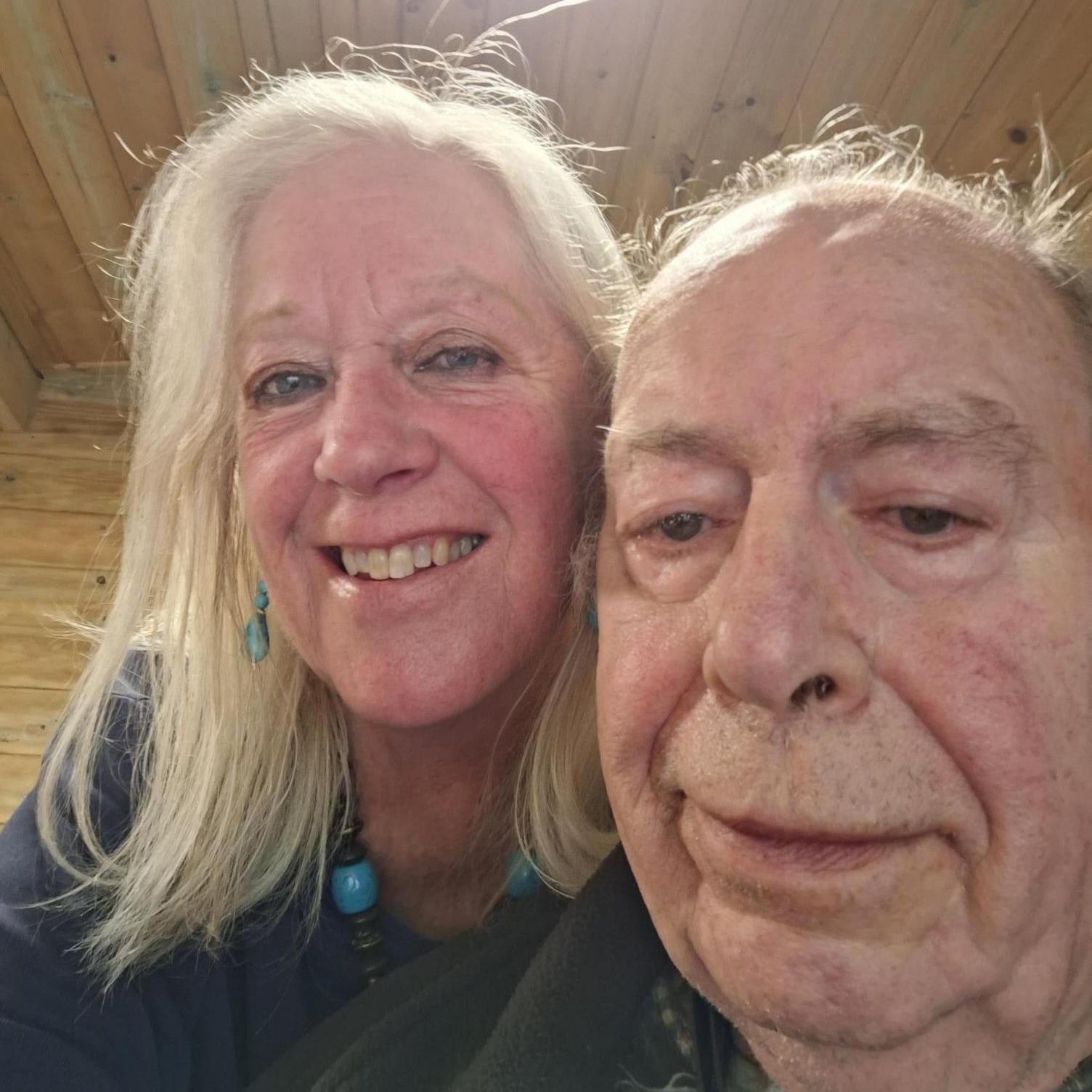
Christine Janes said she and her husband Bob had faced "failings at every turn" since he started displaying symptoms of dementia
Christine Janes, 76, from Lyne in Surrey, said she wanted politicians to make "dementia an election focus".
According to the Alzheimer's Society, external, the condition was the leading cause of death in the UK between 2012 and 2021.
Ms Janes' husband is currently in residential care due to Alzheimer's and mixed dementia, after what she described as a "struggle for a diagnosis", and is entitled to help with the costs.
"If they spent more money on the early diagnosis and the other drugs, then it would save [government] a lot of money," she said.
Earlier this year, Alzheimer's Research UK told BBC Panorama that patients could lose out on two ground-breaking new drugs because the NHS was unprepared.
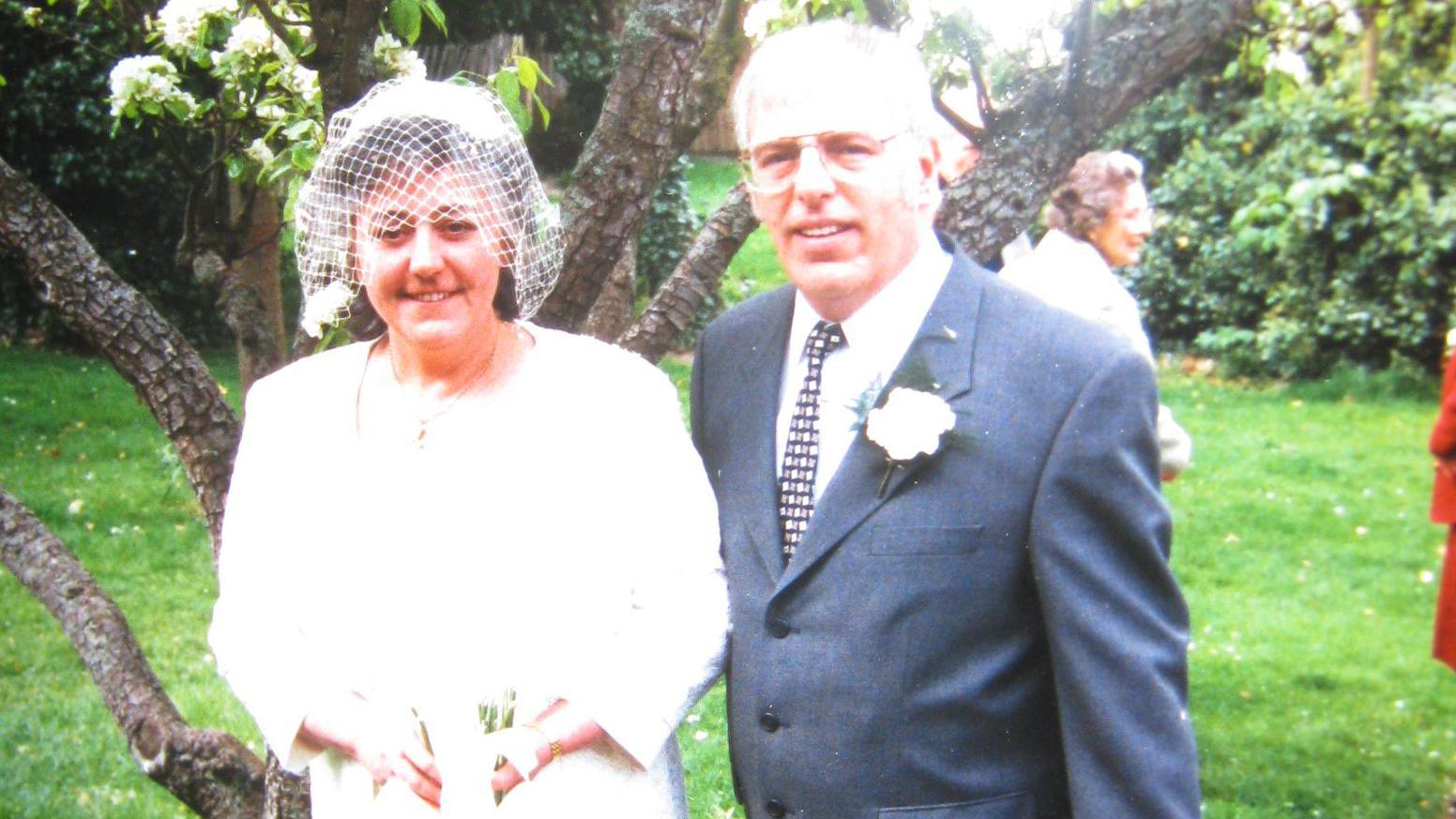
Tony Maund lives alone after his wife moved to residential care and said he needed help to remember his medication
Meanwhile, Tony Maund, 73, from Chatham in Kent, said he was "not quite sure how to go about getting the care" that he thought he needed after his wife went into a nursing home.
The retiree is on around 20 pills a day for various illnesses, and has recently been diagnosed with mild cognitive impairment affecting his memory, but said he had not seen a GP face-to-face for a year.
"More social support - that would help," he said.
"I probably would appreciate a weekly visit for somebody just to check that I was OK."
The Conservatives, Labour, Liberal Democrats, Reform UK and the Green Party have been contacted for comment on their pledges for adult social care.
Follow BBC Kent on Facebook, external, on X, external, and on Instagram, external. Send your story ideas to southeasttoday@bbc.co.uk, external or WhatsApp us on 08081 002250.


Get in touch
Your Voice, Your Vote: What do you want BBC News to cover this election?
Related topics
- Published21 June 2024
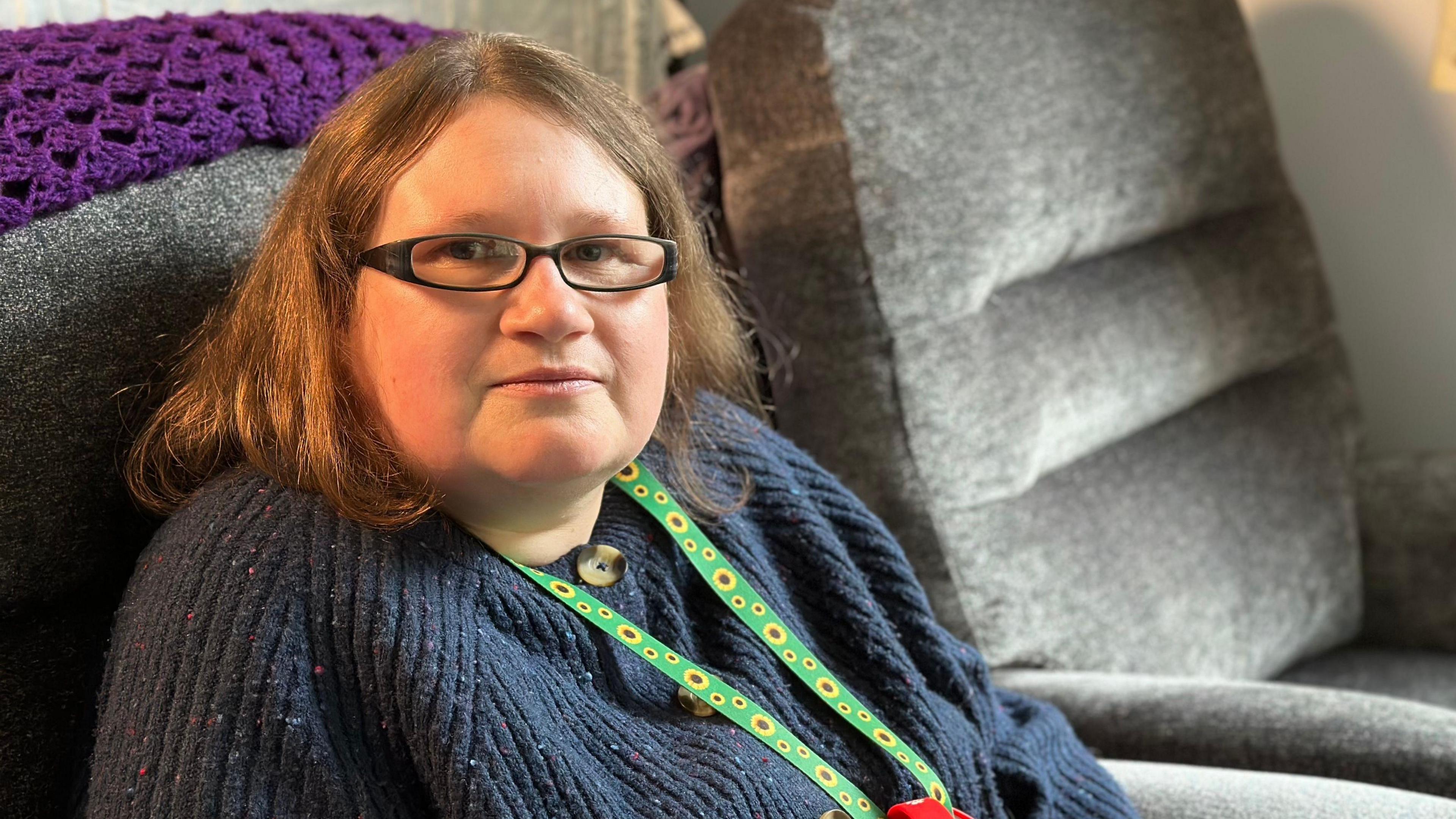
- Published12 June 2024
